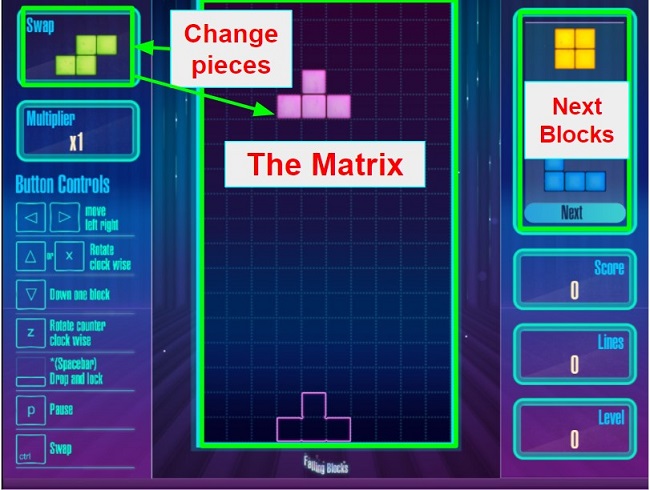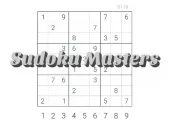Tetris - Play Tetris Online for Free | get 7 wining Tips | No Download, יולי 2024.
I’ve been playing Tetris since it first came out on the Game Boy in 1989. As technology improved, the game has stayed remarkably consistent. The newer online game versions of Tetris use the same seven blocks that drop from the top of the board, known as the Matrix, and you have to try and arrange them into complete horizontal lines.
While Tetris is one of the best selling games of all time, with over 35 million copies sold back in the early 1990s and more than 425 million paid mobile app downloads in the past decade, you can play it completely free in your browser.
Fun Fact: A Russian Cosmonaut played it on the MIR space station in 1993, making it the first video game to be played in outer space.
Understanding the Tetris Game Board
While there are different versions of Tetris floating around the web, most of them have the same basic layout.
• The Matrix: This is the playing area.
• Next Blocks: While some games only show the next block, others will show you the next three blocks.
• Swap Blocks: You can switch the falling block with the one shown in the box.

How to Play Tetris
There are seven Tetris blocks, known as tetrominoes or tetrads, that can drop from the top of the Matrix. You can move them right and left, rotate them clockwise, and increase the downward speed. The blocks look like the letters I, O, T, S, Z, J, and L.

The object of Tetris is to arrange the falling tetrominoes into complete horizontal lines. Once a line is complete, it is removed from the board.

At the beginning of the game, the Tetris blocks fall at a slow speed, giving you plenty of time to look at the Matrix and see where is the best place to put them. If you know exactly where the block should go, there is a keyboard button you can press, usually the spacebar, and it will instantly drop down and lock in the position directly below it. You can also push the down arrow to speed up the fall, but unlike the spacebar, you’ll still be able to move and rotate the block.
The level of difficulty increases after you complete your first 10 lines. This will bump you up to Level 2, where the blocks begin to fall a little bit faster. The level and speed will increase with every 10 lines that you complete.
To be successful, you will need to be able to recognize which blocks are falling, which are coming up, and plan where to drop them. The challenge is even greater as the piles of blocks grows closer to the top of the Matrix, giving you even less time to make your decision.
The game ends when one of the blocks reaches the top of the Matrix.
How to Win
Unlike Mahjong or Spider Solitaire, games with a defined winning scenario, there is no way to officially “beat” Tetris. Instead, you play until you lose.
There are two ways to judge your success in Tetris, not including just having fun.
• Level: As I mentioned earlier, you level up after completing 10 lines.
• Points: You get points for creating a row and even more points when you use one block to create multiple rows. Some Tetris versions reward building rows with consecutive blocks by adding a point multiplier that increases by 1x with each consecutive win.

Track your top scores and levels with a game that has a leaderboard that saves your personal stats.
7 Tips for playing Smart Tetris
1. Understand how blocks rotate: It’s very easy to get confused between the L and J or Z and S shaped blocks. While they look similar, they are really mirrored images of each, and if you think you have a place for the L, but it’s the J that is falling, by the time you realize your mistake, it might be too late to find a new home for the block.
2. Don’t let a mistake ruin your game: It happens to every player. You have the perfect place for a block, only to drop it too quickly and miss the spot or think you had space for a block only to discover it’s too big. Don’t get frustrated; hopefully, you can still salvage the game and start building new rows around your mistake. With the right moves, you’ll clear the mistake off the board.

3. Go with the flow: This tip is important for players trying to build a stack of lines three or four rows deep. If you plan to keep one space open, you can quickly get into trouble waiting for a specific block to fall. The problem is you’ll keep building a tower with no idea when the block you need will fall. At some point, if the long straight block you need doesn’t fall, you’ll end up dropping random blocks and making it much harder for you to start clearing off new rows.
4. Try and keep blocks flat as long as possible: This is a helpful strategy for beginners, according to Jonas Neubauer, a seven-time winner of the Classic Tetris World Championship. The strategy is to, whenever possible, lay your blocks flat and don’t stack blocks more than two blocks on top of each other, and try to avoid creating holes that are more than two squares deep. The reasoning is that there is only one block that can fully fill a hole three squares deep.

5. Plan ahead: Just like Bubble Shooter, you can see the blocks coming up, which will help you make an educated decision as far as where to put your next blocks. If you’re playing Tetris with the “Hold” block option, you can use it to store a block you’ll want for later. The best example of this is when you have a long stick but don’t need it. You can save it for later since this block never seems to come up when you really need it.
6. Leave spaces two squares wide: This strategy is helpful when you’re trying to play flat. If you have nowhere good to place a block, instead of stacking it on top of another block, try and place it on the lowest possible row, with at least a two space gap between it and the next closest block. This will give you a flat place to put just about any block, except for the straight block.
7. Make quick decisions: As you progress through the levels and the blocks start falling faster, you won’t have much time to think about where each block should go. To continue advancing through the faster levels, you’ll need to know ahead of time where each block will go as soon as it enters the Matrix.
Now that we learned a lot about Tetris and how to play it like a pro, I would like to share with you some of its history.
History of Tetris
Tetris was first created in 1984 by a Russian software engineer named Alexey Pajitnov. He didn’t know that he created what would become one of the most popular online games in the world. He was simply having fun and trying to see if he could do it.
He named it Tetris, a combination of the Latin word Tetra since all the blocks contain four squares, and tennis, his favorite sport.
After some of his friends played and enjoyed Tetris, Pajitnov sent it to a colleague at the Hungarian Institute of Technology. There, it was discovered by Robert Stein, the owners of Andromeda Software, who happened to be in Hungary at the time. Stein brokered a deal with the Russian agency in charge of foreign distribution of Soviet software, and Tetris became the first software developed in the Soviet Union to be sold in the US.
Once in the US, things moved quickly. Tetris was introduced as a coin operated video games before finally reaching a deal with Nintendo, who released the game for Gameboy and NES. Despite all the success, Pajitnov didn’t make any money from Tetris in the early years since the Soviet Union owned the gaming right. Only years later, with the fall of the Soviet Union, he reclaimed ownership rights and earned some money from the game.
FAQ
Are Tetris blocks random?
One of the great things about Tetris is that the blocks are completely random when they fall. There is no order or sequence that you’ll pick up, no matter how often you play. This way, every game is unique, and even if you’ve played for years, you’ll have no idea which blocks to expect.
Why is Tetris so popular?
According to Pajitnov, the popularity of Tetris is because the game is both simple and intellectually challenging. It appeals to people’s desire to create order out of chaos and solve puzzles.
What are the Tetris shapes?
There are 7 different shapes, each one consisting of 4 squares. These are known as “tetrominoes,” which is a shape that is made with four squares, each one has to be connected by sharing at least one side with the square next to it. When the shapes are in their starting position, they appear to be the letters I, O, T, S, Z, J, and L.





